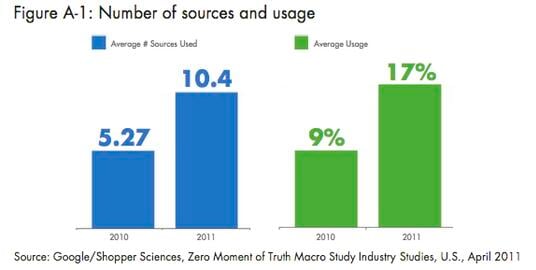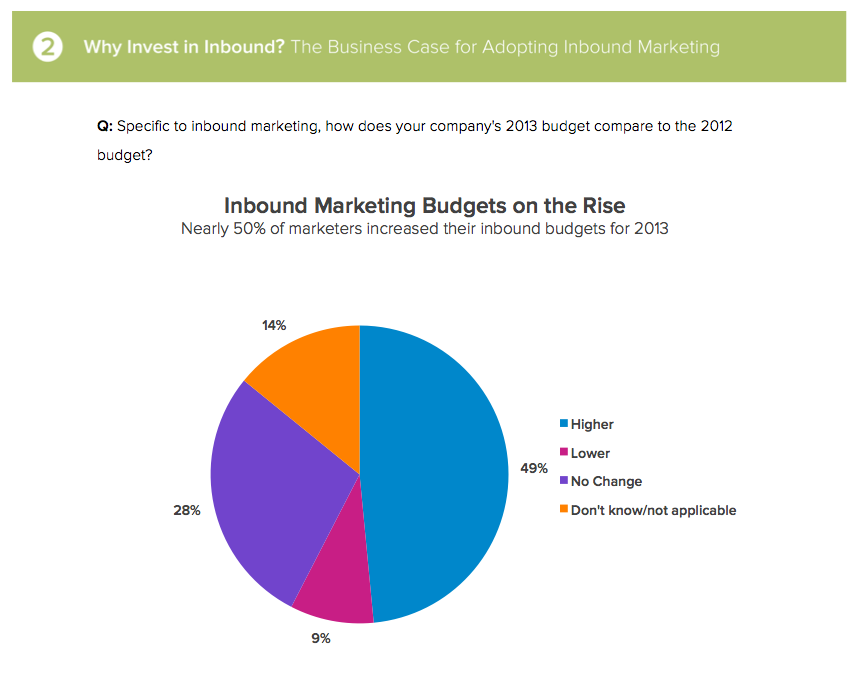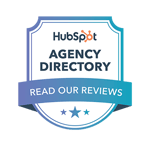You’ve heard a lot about the benefits of inbound marketing and know that it is a long term investment in time and resources. Inbound marketing is not just a tactic that you try for a few months. It’s a strategy that must be adopted throughout your organization to make it truly effective. When a business is in alignment with an inbound marketing strategy, the effort is worth the gains they can see.

Findings from the 2013 State of Inbound Marketing Report
In 2013, 41% of marketers confirm inbound produces measurable return on investment (ROI), and a staggering 82% of marketers who blog see positive ROI for their inbound marketing.
While inbound marketing can be an incredibly effective strategy, not all businesses benefit equally. Let's look at what kinds of businesses can benefit the most from it.
Which business scenarios are well suited for inbound marketing?
If you’re working on your 2014 marketing plan and budget, here are some good indicators of whether an inbound marketing program could benefit your company:
- Your product is sold through a consultative sales process.
- Sales of your product require educating the customer on the benefits.
- Your product has a long sales cycle.
- Your customers are online.
In other words, you’re not selling tacos.
Your business sells a product that is not commoditized. It’s a product or service that has a high enough average selling price (ASP), that the buyer wants to make sure he or she is making an educated decision to go with your company.
Today’s buyer is more connected than ever and they consider many sources of information before making a buying decision. As seen here with the Google Zero Moment of Truth (ZMOT) Study consumers evaluated twice as many sources before make a purchasing decison than the previous year.

Higher ASP’s and consultative selling go hand in hand with long sales cycles. If you are working with an enterprise level client to implement a business operations software product with multiple locations and/or multiple users, then it’s very likely that your product has a long sales cycle. Inbound marketing supports the sales process with targeted content for all steps in the cycle.
Inbound marketing increases sales productivity by providing higher qualified leads so the sales organization pursues the prospects who have identified themselves as having the most interest. One benefit to your bottom line is the cost per inbound lead is less than traditional outbound leads.
Additonal findings from the 2013 State of Inbound Marketing Report
Inbound marketing produces more, better quality, cheaper leads: Twice as many marketers say inbound delivers below average cost per lead vs. outbound strategies. Our survey found that 34% of the leads marketers generate in 2013 come from inbound marketing sources. In fact, inbound marketing delivers 54% more leads into the marketing funnel than traditional outbound leads.
Inbound leads also deliver superior cost per lead and cost per customer. In fact, U.S. inbound marketers spending more than $25K per year save an average of 13% in overall cost per lead and more than $14 dollars for every new customer acquired versus those relying on outbound strategies.
Why should I care about inbound marketing?
Your competitors are employing inbound marketing strategies. According to the 2013 State of Inbound Marketing Report 60% of businesses have adopted inbound practices. 80% that have executing inbound strategies have integrated it into broader company goals and 50% planned to increase their spend on inbound marketing this year. It’s a proven methodology and early adopters are benefiting from establishing their websites as sources for quality information.

It’s never been a better time to be a consumer
As consumers, we have more information at our reach than ever before. When considering a purchase we go online to search for product reviews, get answers on how to solve business problems, and get advice from experts. We also want to easily find information on companies we are considering doing business with and the company website is often the buyer's first impression.
It’s important to remember that all online communications are with a real person. When asking yourself if inbound marketing is the right fit for my business, consider if your company is customer centric. Is it focused on solving a customer problem or making an impact? An inbound marketing strategy is absolutely worth considering if your business objective is to is develop long-term relationships and delight your customers. The inbound methodology is built around providing relevant and useful content with the expectation that a sale may not be right around the corner. Your objective is to grow loyal customers who love your product and recommend it to their friends and co-workers.


Image credits: Chess photo - Klassic eLegance Photography, Figure A-1 - Google ZMOT Study, Figure 2 - 2013 State of Inbound Marketing Report















